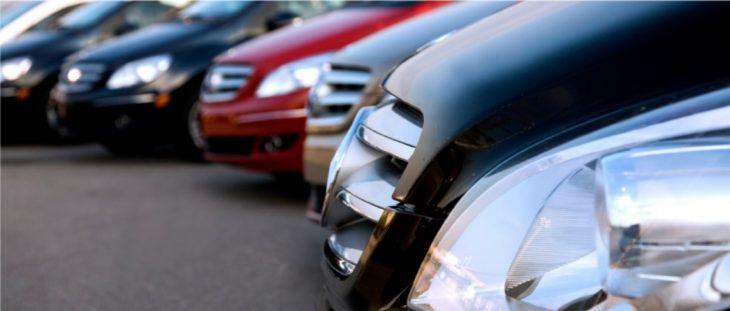Tax reform, government shutdown might affect used car industry
by January 10, 2019 2:02 pm 650 views

The used car industry might be negatively impacted by the government shutdown, tax reform and whether 2019 tax filers made the appropriate adjustments to their 2018 withholdings as used vehicle prices remain 2% higher than they would’ve been without an abnormal price rise as a result of tariffs over the summer, an economist said.
Smoke discussed the potential impact of tax reform as part of a recent report on the used car industry in a quarterly conference call that included Zo Rahim, research manager at Cox Automotive. They also presented the Manheim Used Vehicle Value Index for December, which rose 4.3% to 137.6, from the same month in 2017.
“The concern here is that it’s a surprise,” said Jonathan Smoke, chief economist for Cox Automotive, adding that Home Depot recently reported its employees hadn’t made changes to their tax withholdings. “This will be a surprise for many people. Just that surprise alone, forget the government shutdown, could potentially cause filing and any refunds that are still being issued to be collectively hitting the economy later than normal.
“If there is that kind of surprise, there will be political backlash related to pushing the IRS to revise the withholding process,” he continued, adding that the IRS issued a report in July about changes to tax withholding documents in line with the tax reform. “That would imply, if we are correct, that suddenly we’re going to have lower take-home pay, which would in essence sort of act like a tax increase. So it’s a double whammy, if we’re right.”
The government shutdown might lead to delays in tax refunds, and the number and size of tax returns could be affected as a result of tax reform and tax withholdings adjustments, Smoke said. Tax refunds benefit the used car industry, contribute to the outperformance of the gross domestic product in the second quarter and help to improve consumer finance trends, such as defaults and delinquencies, over the same period, he said.
“Our analysis suggests that there is potential for significant numbers of tax filers to be in a different position relative to tax refunds than they are accustomed,” Smoke said. “Seventy-five percent of filers received a tax refund in 2018 on their 2017 taxes. The average refund was almost $2,800. The used car market and the broader economy would be negatively impacted if even a small percentage of households are negatively surprised by getting no free refund when they are used to getting one, or worse, owing money when they are used to getting a refund. This is a major concern for the first quarter, and could have economic implications for the rest of the year.”
Smoke recommended that dealers build up vehicle inventory slowly this year, and to wait to do so until they begin to have prospective buyers.
PRICES ABOVE TREND
The wholesale price of used vehicles was above trend in the fourth quarter as a result of the abnormal summer price increase, Rahim said. The prices typically reach a peak in March and April after people receive their tax returns and use them to purchase used vehicles.
But the threat of tariffs and their implementation led used prices to rise over the summer, Smoke said. Prospective buyers believed that purchasing a vehicle ahead of any tariffs was better than to wait, leading demand to rise. Vehicle dealers moved through their inventory more quickly over the summer, and sales volume rose at auctions. This started to moderate in the fall.
Prices from the tariffs have yet to correct, and as a result, prices have risen 2%, Smoke said. This year, he expects wholesale sales volume to decline and used vehicle values to see strong, above average growth but not as strong as the past two years. Without the threat of new tariffs, Smoke expects prices to decline this year. But he would expect a repeat of 2018, if new tariffs are proposed.
DEALER SENTIMENT DECLINES
Also in the call, Smoke explained that car dealers’ expectations fell for the first quarter of 2019 as the Cox Automotive Dealer Sentiment Index declined to 44, marking the first time in the history of the survey that sentiment was negative for the future.
“(The fourth quarter) showed a negative turn in dealer sentiment and their outlook for the future,” Smoke said. “The big negative swing in expectations — lower than last quarter and lower than the same time last year — is especially alarming.”
Smoke citied the fading optimism as a result of declining traffic, declining used vehicle inventory levels, higher interest rates and rising costs.
